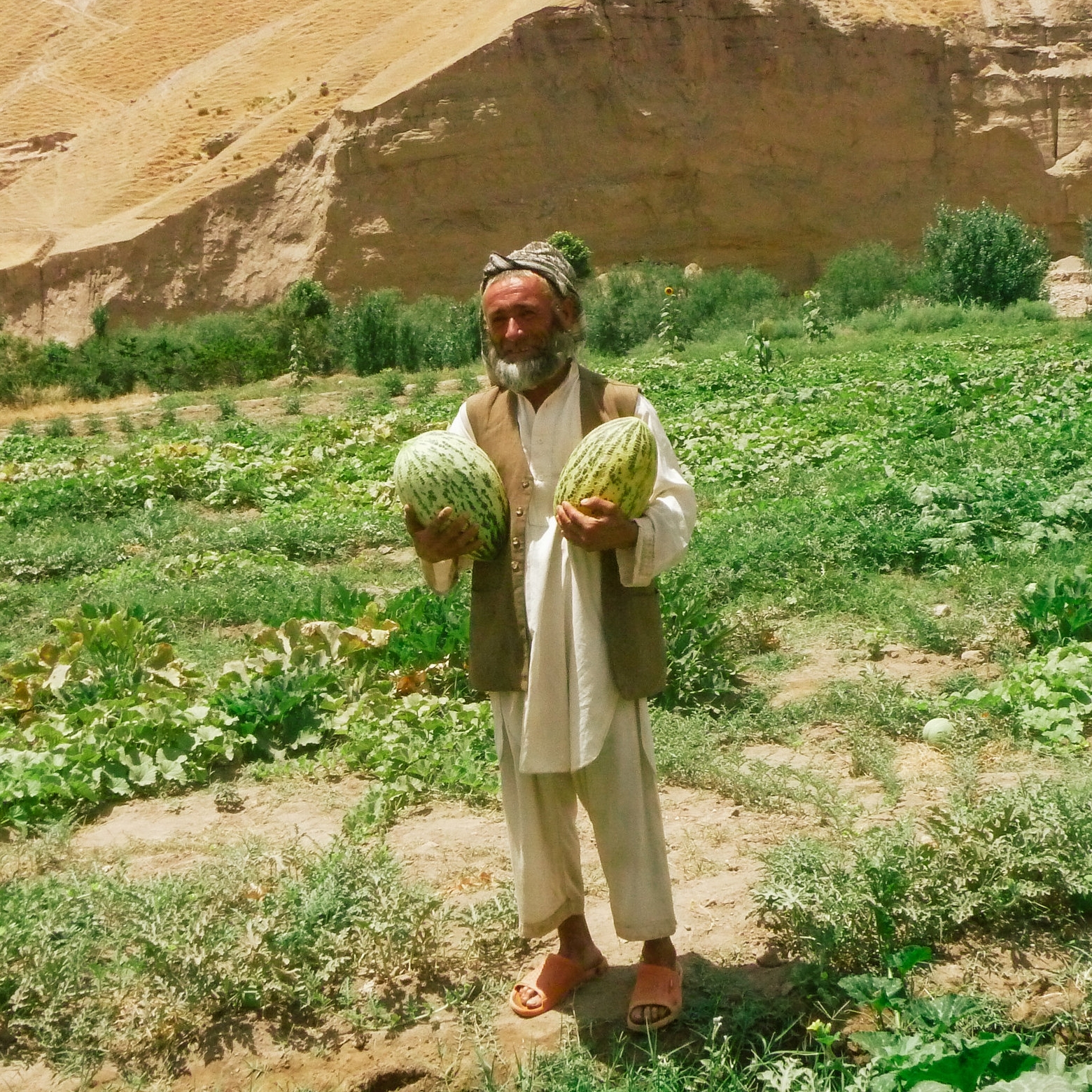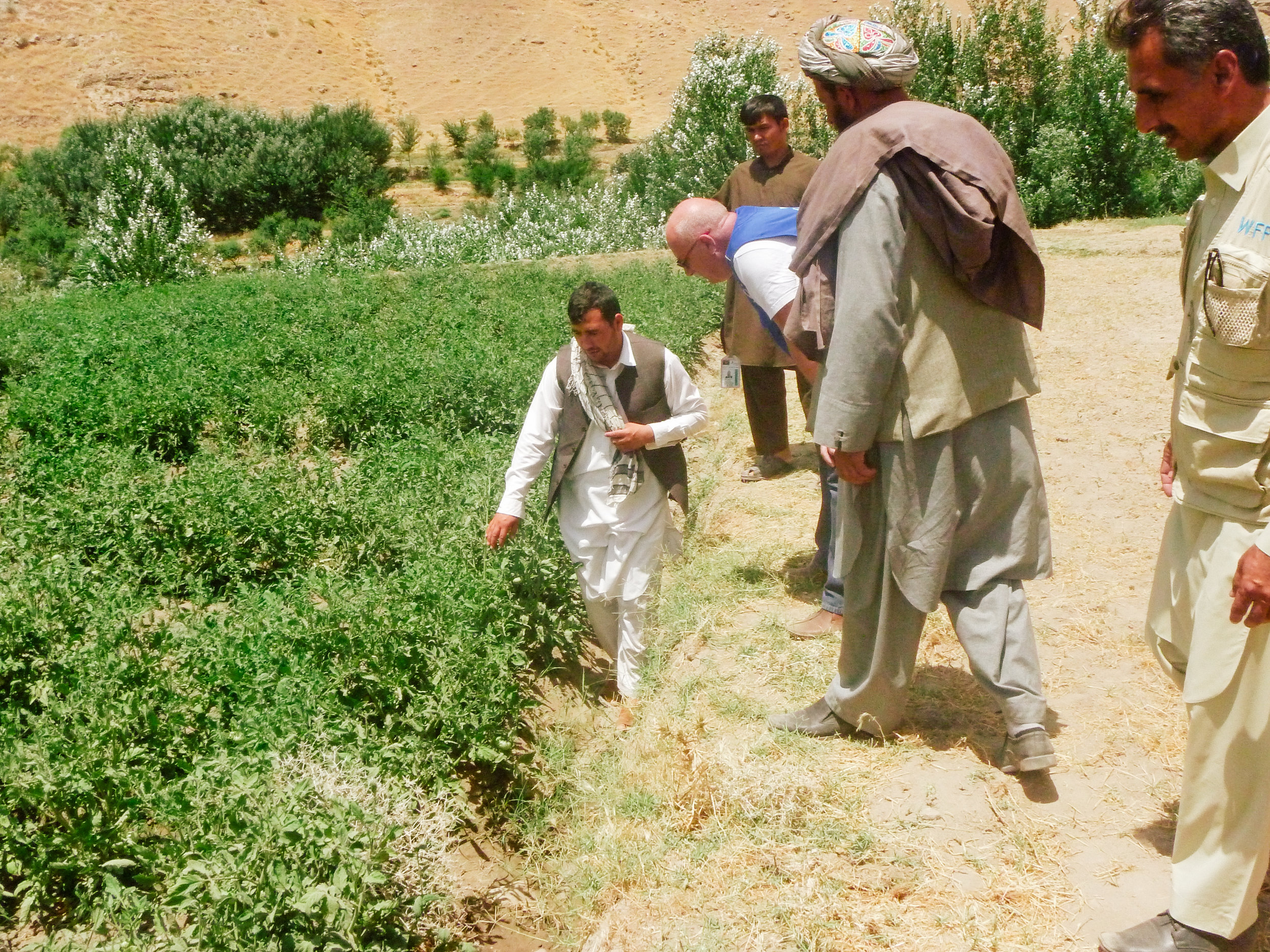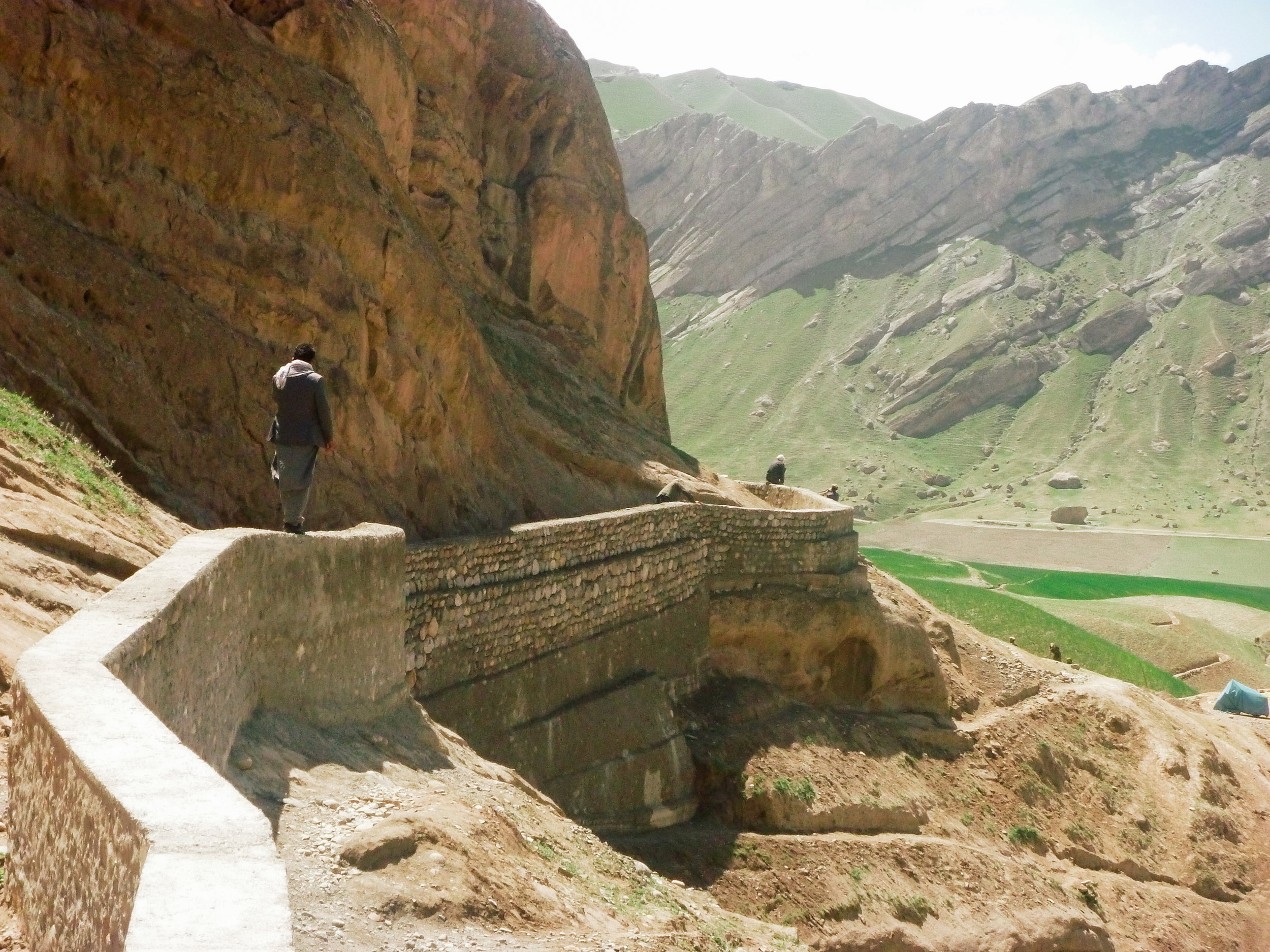
For the first time, rain-fed land has changed to irrigation, allowing local farmers to expand their crops.
“I am Abdul; a resident of Northern Afghanistan. We have 8 people in our family and I am a farmer. Sometimes my wife and my children are helping me in the field. I owned 6 Jeribs of rain-fed land (about 3 acres).
After construction of these water reservoirs by Shelter For Life I immediately converted my land to orchard, in which I planted different fruitful frees such (grapes, Almond, Apple, Pear, Pomegranates, Plum and cherry). I have also allocated some part the land to cultivation of vegetable.
I would say that my yearly yield, compare to previous year, has increased by four times. Now in each season we have fruit and vegetable, which we not only use at home but we also sell to the market. I’m thankful for the Americans who came here and built this water pool for us so now I can water my plants, without having to worry about the rain.”

Adbul, a farmer from Pala.
Pala* has a 3,400 population, and is on the East of Kalafgan in Takhar province. In 2009, our team partnered with FAS-USDA to build a series of reservoirs under the FY2009 Food for Progress (FFPr) project. In Pala, approximately 80% of the community are crop and livestock farmers. Historically, access to water for irrigation has been limited, restricting farmers to grow only rain-fed wheat. However, with the construction of new irrigation systems, many of the farmers are now able to grow high value fruits and vegetables. During the FFPr project, our team facilitated the planting of cherry, apricots, pears, peaches, apple and almond trees, along with coriander, mint, cabbage, cauliflower, eggplant and okra for sale in the market. Today, beyond their successful planting of fruits and vegetable, the region has become a central market point for a number of adjacent farming communities in which the farmers bring their produce for sale.

A vegetable plot now irrigated by the new canal.
For nearly a decade prior to the construction of irrigation systems, the inconsistency of rainfall made life challenging for the residents of the community. During this time, people had access to alternative sources of water but did not have the right to access the water. The available water, the access right for which belonged to the neighboring communities, were so infrequent that crops and trees would not survive.
Prior to the construction of the reservoirs, SFL negotiated with the neighboring community to allow access to their water-rights for one to two hours a day; long enough to replenish the water in the reservoir, which could store up to 5,000 cubic meters of water. This initiative was welcomed by the Community Development Committee (CDC) and the provincial representatives of the Ministry of Agriculture and Livestock.
In collaboration with the Pala CDC and Department of Agriculture, Irrigation and Livestock of Takhar, Shelter For Life international (SFL), with financial support from FAS-USDA Food For Progress 2009, constructed three interconnected reservoirs with total capacity of 5000 cubic meters of water for the irrigating of 125 hectare of rain-fed land. The water flows from Ali Big spring to the reservoirs and are interconnected through pipes. In addition, the project provided short-term job opportunities for 200 people.
Today, nearly seven years after the completion of the project, these farm communities reap the financial benefits of their labor and have continued to maintain the system.
*Location name changed

One of the new irrigation canals in Pala community.















